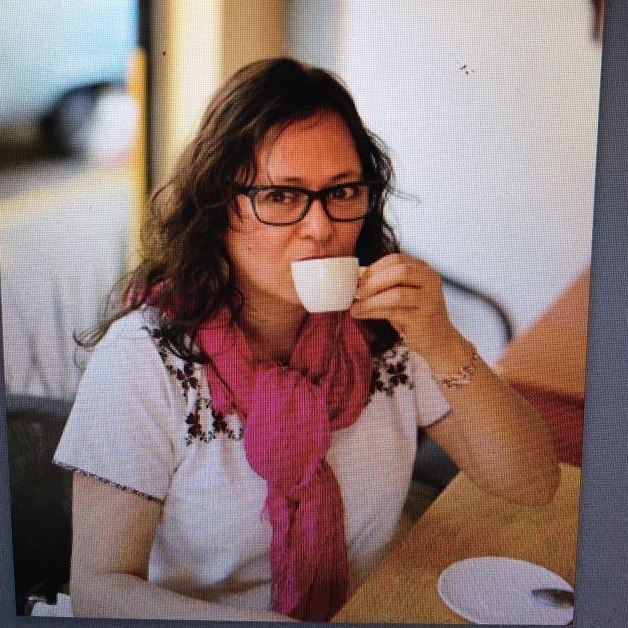City of the Angels
by Libia Brenda
Edited by Julia Rios
Copyedited by Chelle Parker
September 2019
1531 AD
The heavenly hosts had not had such a crowded assembly in nine years. On the stand, the seven archangels reviewed folios and all spoke at once, creating a mixture of voices that, thanks to their origin, did not become a cacophony. The most important vote of the day was about to begin. Remiel (who served as moderator) rang the bell to call for silence.
“All right, let’s move on to the main topic: we received a call from New Spain. The Bishop of Tlaxcala wishes to solicit our support in founding a new city between the Villa Rica de la Vera Veracruz and the capital.”
A murmur of expectation spread across the room.
“In exchange, he promises to do everything possible to dedicate the soil to us. If this is achieved, we will have an open door and the city will be our headquarters, with complete administrative freedom.”
The debate began.
Uriel, in charge of the temples, motioned to approve and proposed that they dictate in a dream the perfect layout of the streets: a grid.
Raphael, protector of travelers, knew the lay of the land.
“In another dream, I can bring him to a little valley between Cholula and Huejotzingo. I like this spot because the conquistadors have not shed blood there.”
But Sariel had objections.
“Why do we need a headquarters in these lands? We already have enough work as messengers and protectors. Wouldn’t this be too intrusive in human affairs?”
Michael, who had been very quiet, took the floor.
“We’ve seen what happened in the last decade. Since the Mexica empire fell, several ancient kingdoms are now only part of a colony; the conquistadors will continue to extend their dominion to the south over the whole continent. If they act with violence, what role are we going to play in all this?”
A seraphim intervened.
“Michael speaks like a strategist, but I second Sariel. Why do we have to play any role? We do not belong to human domains. We shouldn’t interfere with their actions.”
The din of discussion inundated the auditorium until Gabriel cleared his throat and began to speak. His tone was calm, but his voice reached every corner of the room.
“Sisters, brothers, we are guardians. We watch, we are messengers, we help the innocent. Our primary task has always been to protect, and that is a form of interference. We won’t change our actions. A place of our own where we can receive petitions for help will serve to let us do our job more diligently. There are entire peoples in danger and we know that even worse times lie ahead. I’m with Michael: however discreetly, it is our duty to take sides with the victims. We personify the most numerous force of good. If we don’t help all those troubled, war-wounded souls, who will?”
“But,” Sariel said, “if the conquistadors are going to build this city, does that mean that now the angels will work with the Spanish clergy and be their allies? We cannot make that deal.”
Uriel resolved the matter.
“No. This sacred ground will be a door for us, but we won’t have direct dealings with the religious institution. The bishop projects that this city will serve precisely to avoid favoritism towards the Spaniards and, although it will be under the power of the angels, we will not interfere in human politics. It will be useful to the extent that it allows us to do our work better. Plus, this is the first time that the angels would have a city in the New World.”
The discussion continued but, little by little, the angels, thrones, choirs, and seraphim were added to the accord. In the end, construction of the headquarters was approved by majority vote.
1749 AD
Dear Juan José,
I hope this finds you and your family in good health.
I have entered the service of a priest of the order of the Franciscans and I am pleasantly surprised to find myself in a city as superb as Puebla de los Ángeles. Above all, because of how well disposed the illustrious inhabitants of this city are towards a richly-appointed table (as you well know, dear friend, the Lord chose the sin of gluttony to be my sackcloth). It prides itself on being a pious city. The Holy Mother has a lot of favor because the Cathedral is of Marian dedication and we are about to celebrate the centennial of its consecration.
The only shadow that weighs on my heart is because of the children. Here they do not let native children mingle in the games of Creole children and people who consider themselves illustrious. When I asked one of the friars if they gave catechism to everyone together or divided them into groups, he looked at me as if I wanted to feed him a rat.
I do not know if it will be too rebellious to follow the dictates of my heart. I have gotten the idea that if I manage to put a few children together on Sundays very early I could teach them at least to trust in their guardian angel, because I believe their tender souls will not have another guide, and we cannot leave them alone. And if it is true that angels dwell in this city, I can teach them to commend themselves to the angels, so they will not lack at least some protection.
Do you remember that prayer that we were taught as children? “My guardian angel, sweet companion …” I do not know, my friend, if they will answer, but if we do not help those poor creatures, who will?
